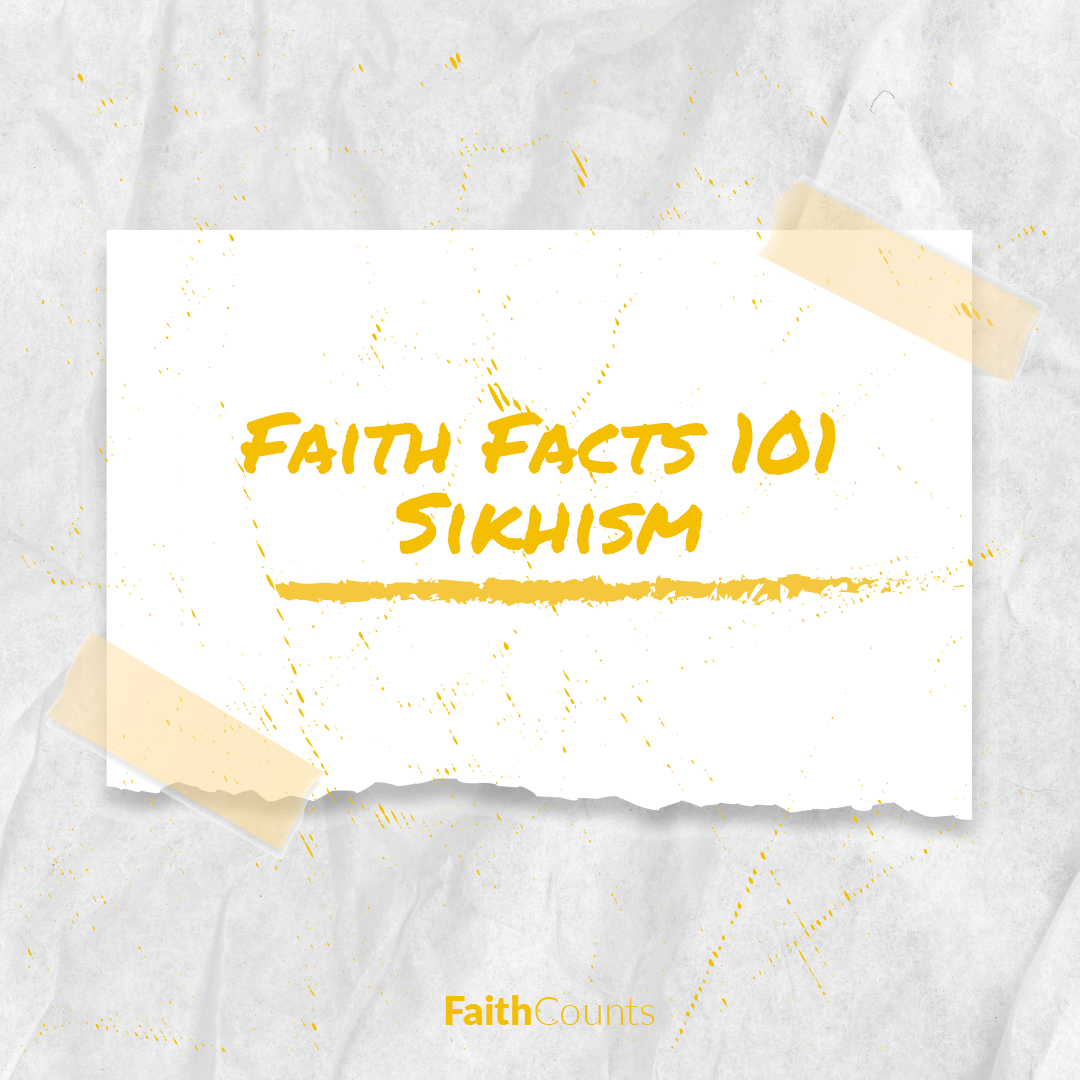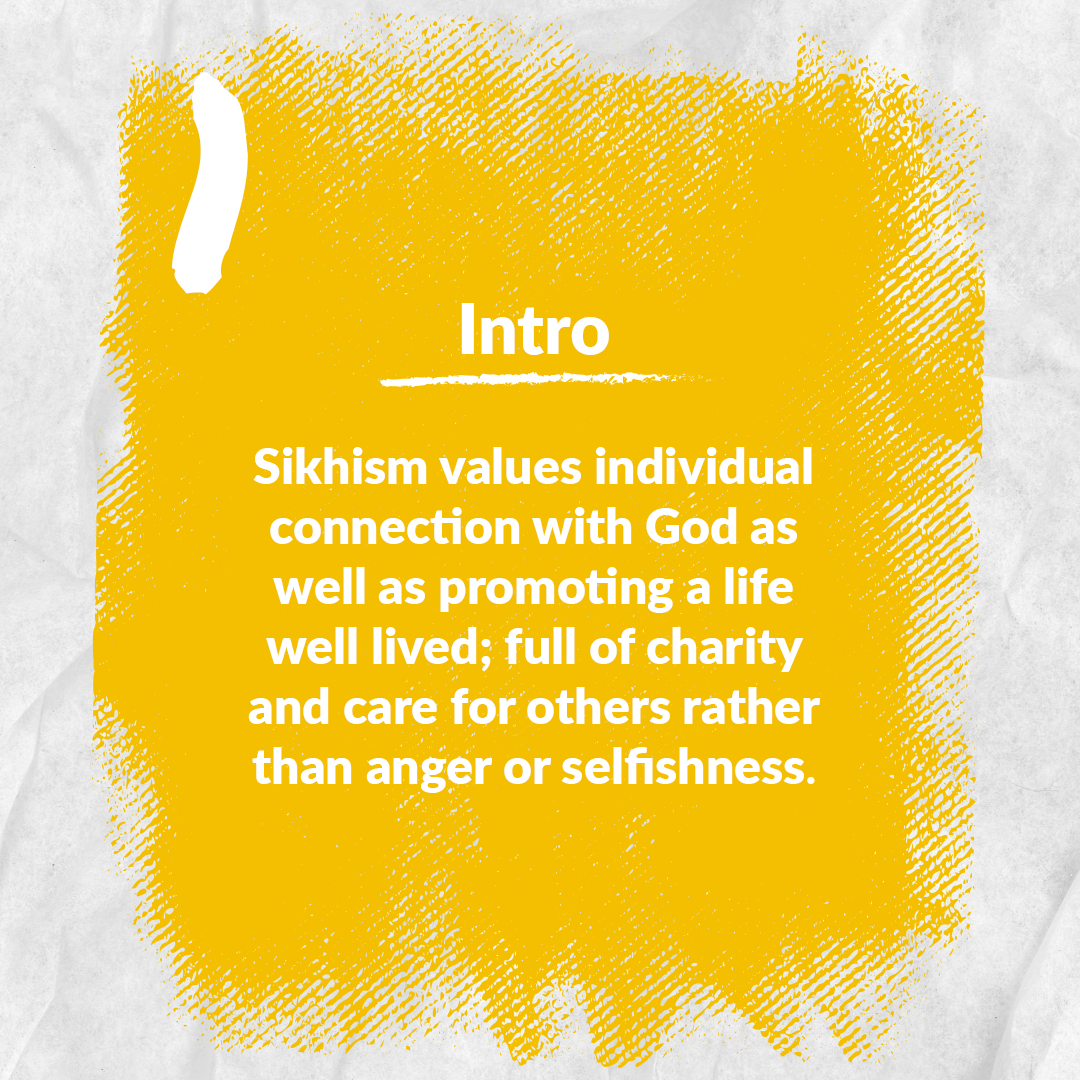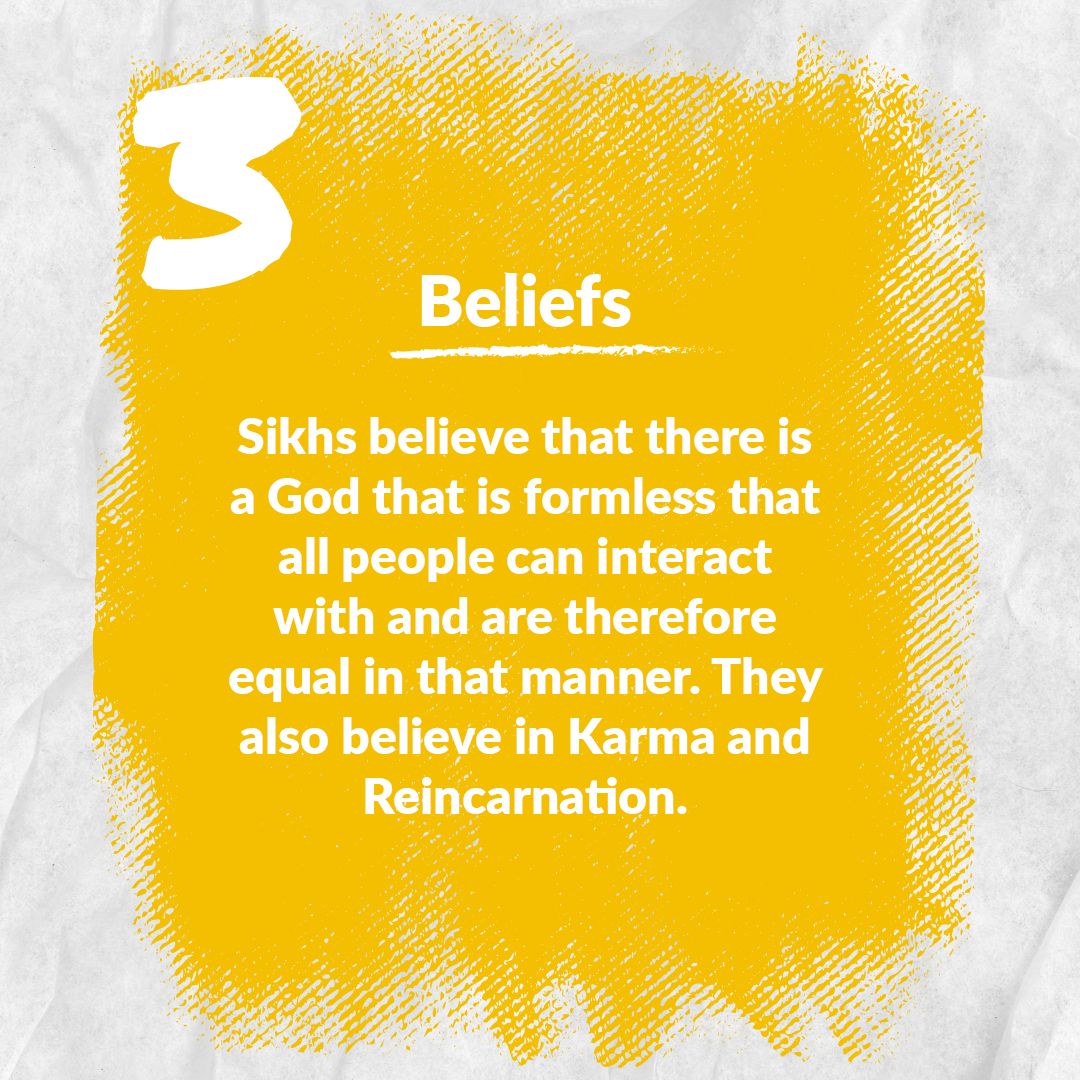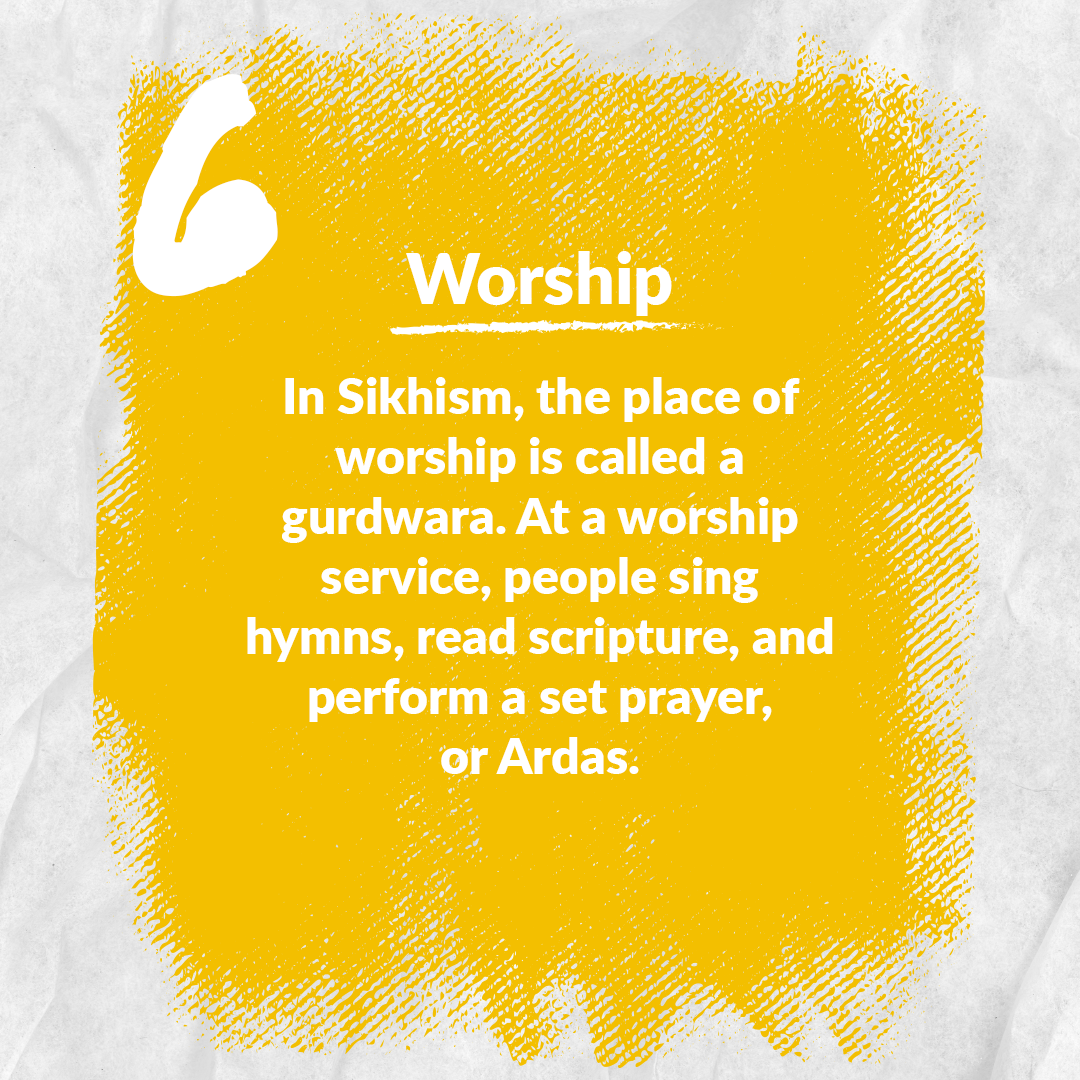Sikhism 101
TL;DR
Sikhism began in India in the Punjab region where many Sikhs still reside. Sikhism values individual connection with God as well as promoting a life well lived; full of charity and care for others rather than anger or selfishness. The Gurus are extremely important here and many of the holidays and festivals Sikhs celebrate commemorate historical events surrounding the Gurus.
Sikh symbols, texts, and beliefs revolve around the importance of a connection with God. This connection leads to freedom from the cycle of rebirth and karma. Individualism and community are balanced as it is important to look introspectively while it is also important to love and be loved.
Beliefs
Sikhism is a religion that began in Punjab, India and was established by Guru Nanak. After Nanak came many successive Gurus who led their members, called Sikhs. Sikhs believe one spirit lived in all the human Gurus on earth as well as the Adi Granth, their sacred text.
Sikhs believe that there is a God that is formless that all people can interact with and are therefore equal in that manner. A “good life” includes caring for others and values community. There is a dual nature of believing in God and acting accordingly. They also believe in Karma and Reincarnation depending on one’s actions in their past life; leaving this demands joining with God.
God gives grace to humanity which allows people to escape reincarnation. One can connect with God through reading scripture, loving others, and worship. They believe that God is everywhere in the world and the universe. Living well is highly valued which includes care and service for others and leaning into the ordinary things in life. Concern for physical things like vanity, pride, and greed can prevent this connection with God.
Despite having some similarities with Hinduism, Sikhism denounces the caste system. The Gurus say the caste system is not at all required for connection with God as all people have access to God and are thus equal. Although Sikhs tend to marry and worship within their designated caste.
Worship
In Sikhism, the place of worship is called a gurdwara. At a worship service, people sing hymns, read scripture, and perform a set prayer, or Ardas. Here, worshipers enter barefoot with their heads covered and bowed in respect. There is an emphasis on the Gurus and their importance and the service usually ends with a sacramental food made of flour, butter, and sugar.
Texts
The primary texts Sikhs use are the Adi Granth and the Dasam Granth. The eternal Guru lives within the Adi Granth and its authorship is clear making it the most important text. It is divided into three parts and contains a statement of belief that there is a “supreme being” that exists outside of humanity. The Dasam Granth on the other hand has some confusion surrounding it regarding who wrote it. It includes legends about gods and older stories.
Aside from these, there are other devotional works from the various Gurus that are valuable to Sikhism like the janam-sakhis and the gur-bilas.
Holidays
Many holidays in Sikhism revolve around the past Gurus including their births, deaths, and teachings. The other festivals are the New Year festival of Baisakhi, Diwali the Festival of Light, and Hola Mahalla which includes military parades. Festivals tend to include visits to gurdwaras, speeches, and processionals.
Symbols
Sikhism has five major physical symbols. The first is kesh or uncut hair which symbolizes simplicity and the idea that what God provided is enough and physical appearance is not as significant. Kara or steel bracelet is another symbol that represents permanent bonds and it demonstrates that God has no beginning or end. It shows restraint as well; it is made out of steel rather than a precious metal so it is not flashy or gaudy. Next is the Kanga or wooden comb which represents cleanliness and care for the body God provided. Kaccha or special undergarment is another symbol that is historical and stands for chastity. The final of the five symbols is kirpan or sword. This can represent defending God as well as the weak and vulnerable. It can also mean fighting injustice.







